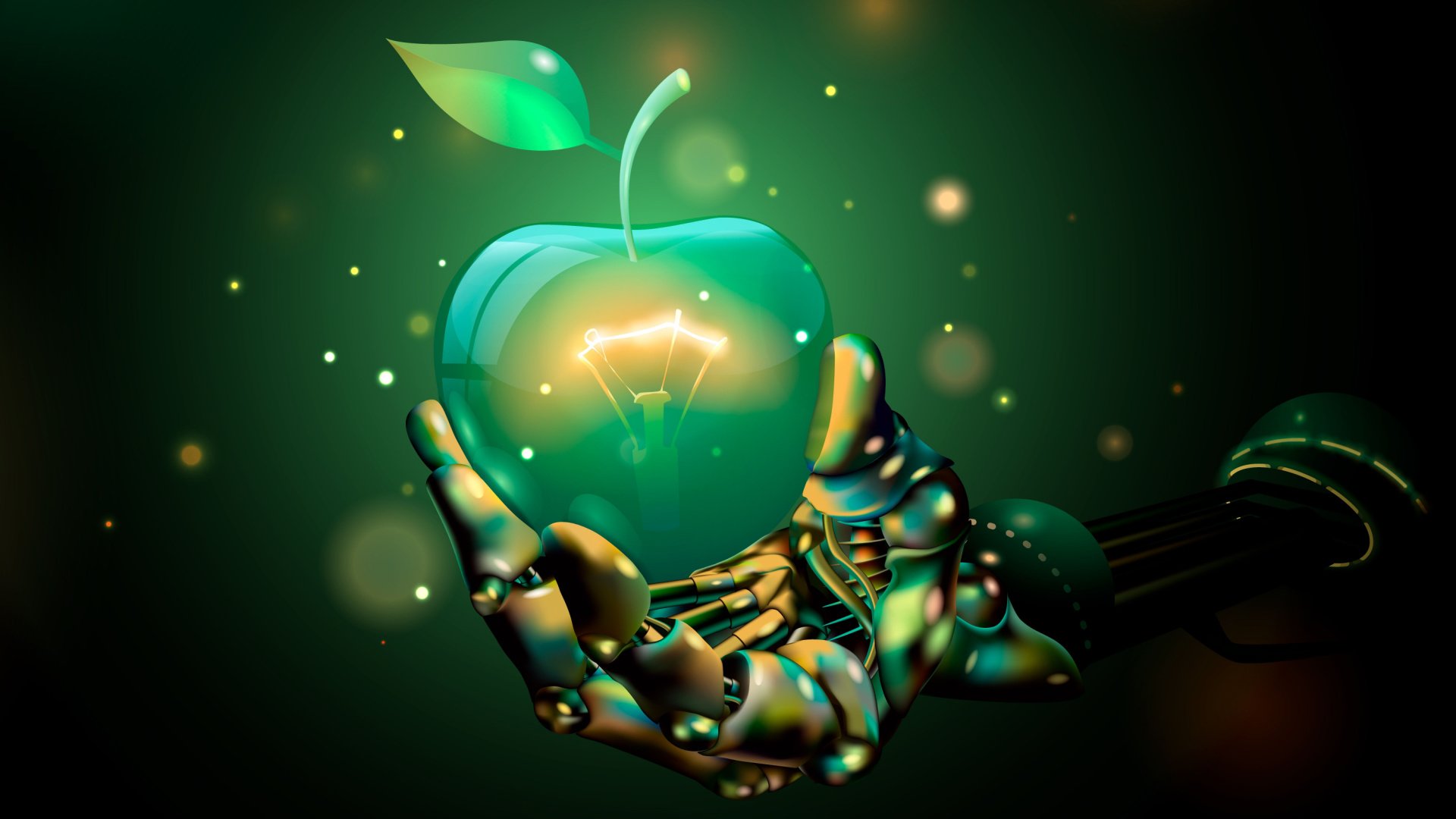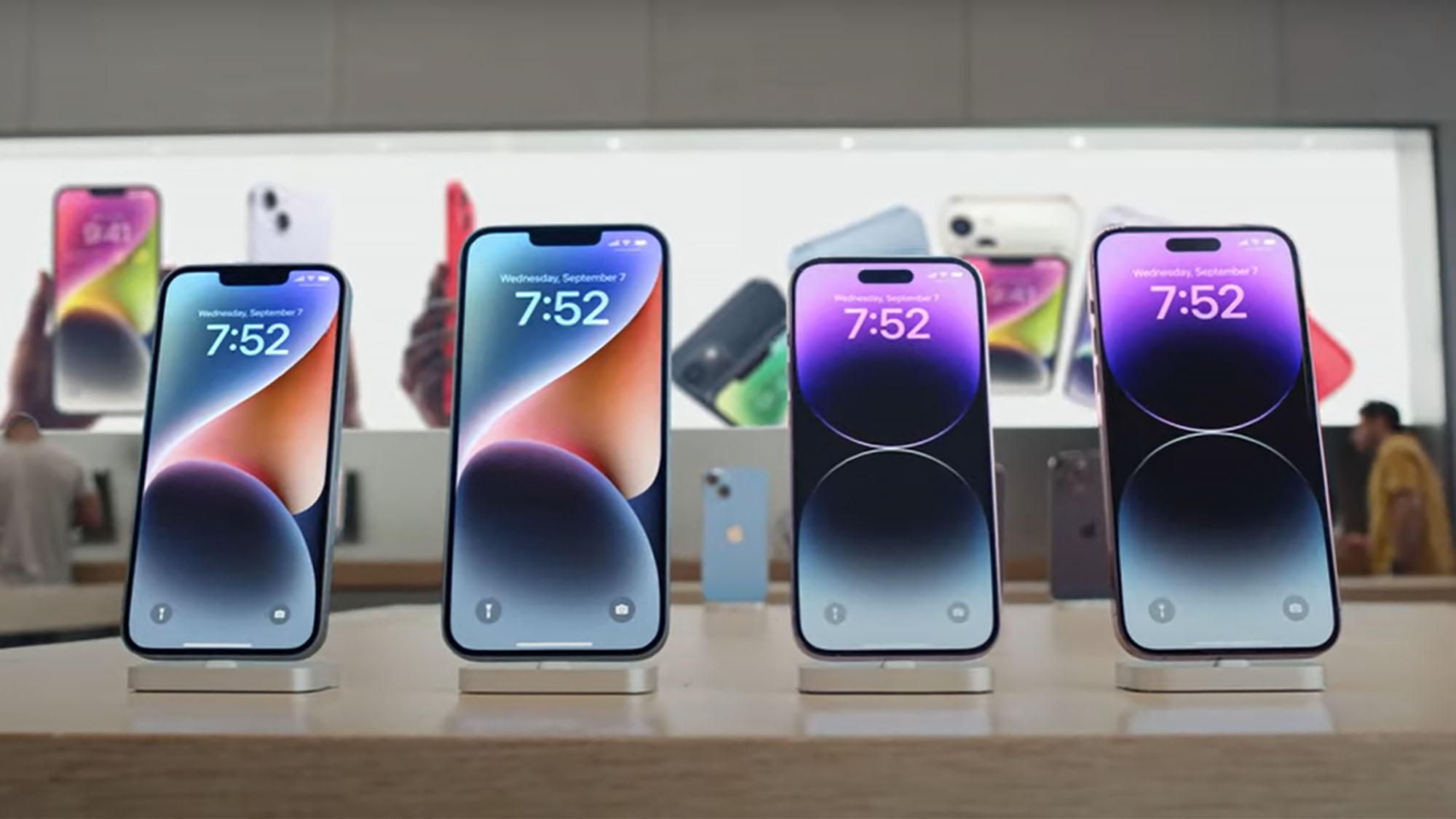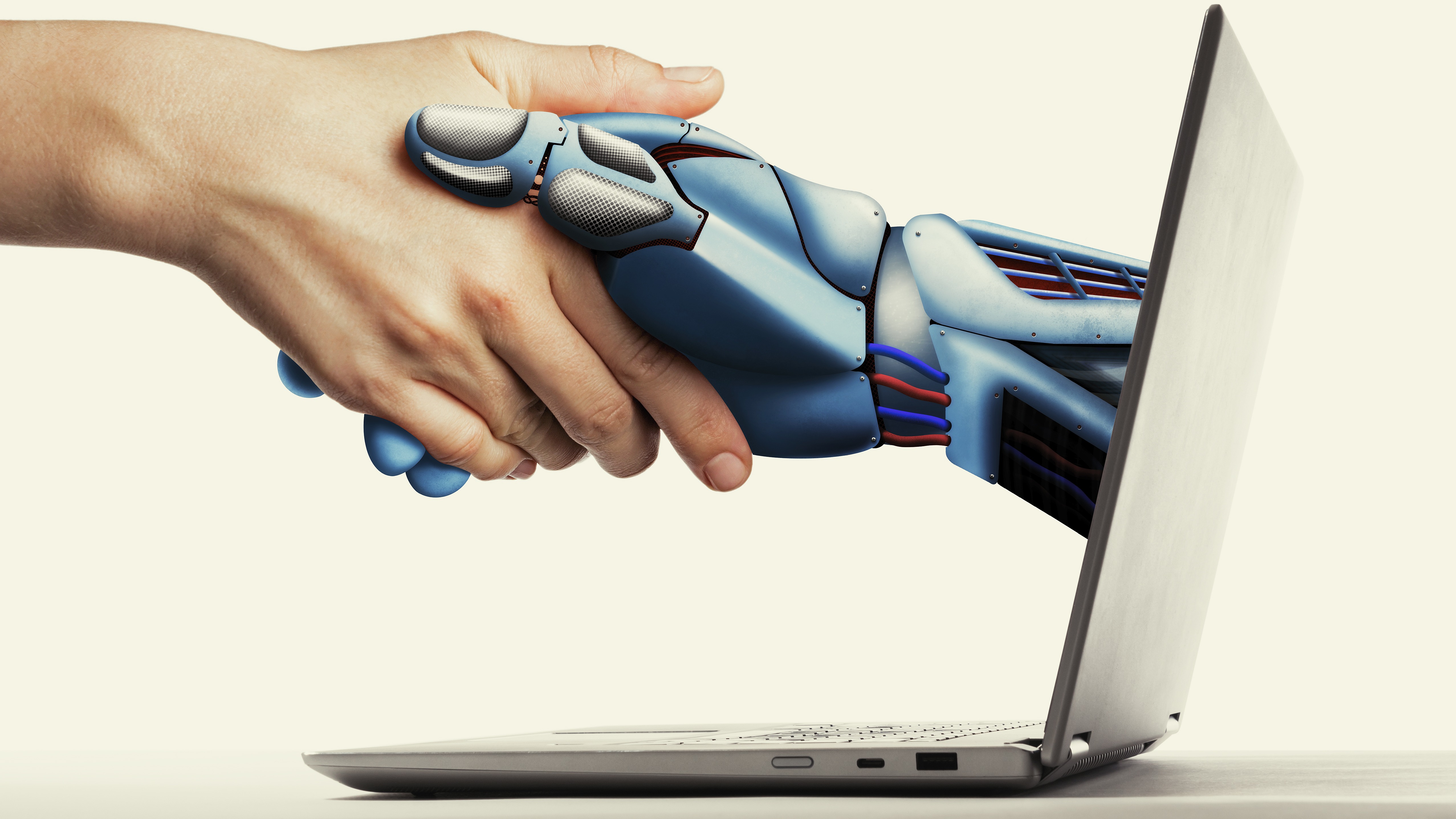Google I/O laid down the AI gauntlet, and Apple needs to respond at WWDC
Google and Microsoft love AI – but what about Apple?

Sign up for breaking news, reviews, opinion, top tech deals, and more.
You are now subscribed
Your newsletter sign-up was successful
Google’s big I/O 2023 developer conference has come to a close, and amongst the big hardware reveals, where we glimpsed and held the new Pixel 7a, Pixel Fold and Pixel Tablet (which I am surprisingly tempted by…), there was one big theme: Artificial Intelligence.
As my colleague Lance Ulanoff, who was at Google I/O in person, pointed out, Google went in hard with AI, and with Apple’s own developer conference, WWDC 2023, coming up on June 5, there’s a growing sense that the iPhone maker needs to present its own vision of AI – otherwise it might end up looking late to the party.
Google’s own enthusiasm for AI has been years in the making (Google DeepMind, an AI research lab, was acquired back in 2014), but with its rival Microsoft making big waves in AI thanks to integrating ChatGPT tech into its floundering Bing search engine, it felt to me like Google was also using I/O 2023 to flex its AI muscles and return the spotlight to Bard, its AI chatbot that has yet to capture the public’s imagination in the same way that ChatGPT (and Bing) have.
While Apple would like to think that it is above the petty squabbles that its rivals indulge in, the truth is that if it doesn’t show its AI hand soon, there’s a risk that Google and Microsoft will look more innovative and exciting – and that’s not something that Apple will like.

The old Apple way won’t cut it
In the past, Apple has often held back from rushing out products to capitalize on the latest tech hype. Instead, it lets its rival scramble to be the first to get something out while taking time to finesse the hardware, software, and form factor, so when it does release a product, it’s often arguably the most polished and desirable.
This has paid dividends in the past: the iPad wasn’t the first tablet, but for many people, it is the best tablet. The same could be said about the iPod and portable music players, and this could explain why we’ve yet to see Apple’s oft-rumored take on virtual/augmented reality (which could finally show up at this year’s WWDC).
However, this is a strategy that can also prove risky, especially with fast-moving and evolving innovations like AI. Taking time to perfect your offering is always wise, but take too long, and your rivals may have too much mind-share. Worse, you can end up looking like a follower, rather than a trendsetter.
Sign up for breaking news, reviews, opinion, top tech deals, and more.
A late release can also look outdated when rival products are now on their second or third generation.

How keen is Apple on AI?
While many people will be expecting – or at least hoping – that Apple will show off AI at WWDC 2023, how likely is it?
On the one hand, Apple has a suite of products that would benefit from AI integration, especially its mobile and smart home devices, like iPhones and Home Pods. Meanwhile, Apple’s range of Macs and MacBooks now run on its M1 and M2 chips – and these have dedicated “neural” engines aimed at AI and machine learning tasks.
Implementing AI features into its software, such as iOS and macOS, as well as apps such as Garage Band, Logic, Final Cut Pro, and the Safari browser, also seems quite obvious.
So, Apple embracing AI is inevitable, right? Well, maybe not.

The current frenzy over AI is mainly over so-called AI chatbots based on large language models (LLMs), giving them a vast repository of words, information, data and more, and allows them to use this to respond to users’ questions and requests in an intelligent manner. When it works, it’s incredibly impressive.
As you might expect, LLMs aren’t easy to develop, however. ChatGPT is based on GPT-4, created by OpenAI, and is based on years of work.
Meanwhile, Google has created LaMDA (Language Model for Dialogue Applications), with its Google Brain research team having access to a huge amount of data thanks to Google’s history of indexing the internet.
Despite its size, Apple doesn’t have these kinds of resources, and while GPT-4 can be licensed by third parties to be used in their own creations, Apple has never been a fan of relying on other companies.
There have also been some noticeable controversies surrounding AI chatbots recently, with some giving incorrect or even offensive replies to certain queries – something Apple will certainly not want to be associated with.
There are also ethical questions to do with where AI chatbots, and generative AI art applications, get their samples from, with writers, musicians, and artists concerned about the implications AI could have on their livelihoods, and some also accusing AI of plagiarising their work by using original human-created works as a basis for AI-created media.
Apple has a strong reputation among creatives, and that’s something I can’t see it wanting to jeopardize to jump on an AI bandwagon.
There are also privacy concerns regarding some of these AI chatbots, again based on how they acquire the information they use in the LLMs. Apple has worked hard to prove its pro-privacy credentials, and that’s not something I can imagine the company willing to risk, either. Of course, we know that Google and Microsoft don’t have those kinds of qualms.
It’s certainly a bit of a dilemma then. Personally, I think we will see references to AI from Apple, if not at WWDC 2023, then very soon. However, I can’t imagine it will be a chatbot to rival Google Bard or Bing AI, if only because, unlike Google and Microsoft, Apple doesn’t have a search engine it wants to hawk.
Instead, I can imagine Apple focusing on AI as a tool to make life easier for its customers, be it composing an email in Mail, or cleverly removing objects from a video in Final Cut Pro. This is a much more Apple-like approach.
Whatever Apple ends up doing, it does need to start talking up AI. If that means it has to move out of its comfort zone, then even better.

Matt is TechRadar's Managing Editor for Core Tech, looking after computing and mobile technology. Having written for a number of publications such as PC Plus, PC Format, T3 and Linux Format, there's no aspect of technology that Matt isn't passionate about, especially computing and PC gaming. He’s personally reviewed and used most of the laptops in our best laptops guide - and since joining TechRadar in 2014, he's reviewed over 250 laptops and computing accessories personally.